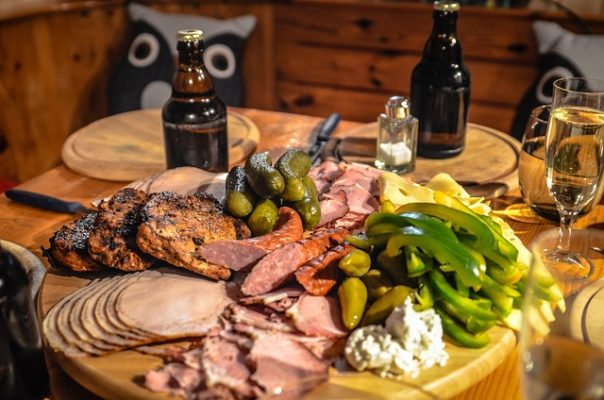USDA Report finds Boar’s Head listeria outbreak was due to poor sanitation practices
 Last July, Boar’s Head recalled liverwurst products due to a listeria outbreak. This recall eventually expanded and came to encompass sliced hams and sausages produced at the same plant as the liverwurst. Recently, the United States Department of Agriculture determined that a Boar’s Head facility’s inadequate sanitation practices contributed to the serious listeria outbreak last year. This was an outbreak from July through November that killed 10 people and resulted in hospitalizations of even more. The report from the USDA shows disturbing yet routine sanitation violations.
Last July, Boar’s Head recalled liverwurst products due to a listeria outbreak. This recall eventually expanded and came to encompass sliced hams and sausages produced at the same plant as the liverwurst. Recently, the United States Department of Agriculture determined that a Boar’s Head facility’s inadequate sanitation practices contributed to the serious listeria outbreak last year. This was an outbreak from July through November that killed 10 people and resulted in hospitalizations of even more. The report from the USDA shows disturbing yet routine sanitation violations.
Call Moll Law Group About Your Claim
The USDA’s report examines alarming facility conditions that included dead bugs, mildew and black mold near machines, condensation dripping onto exposed products, broken flooring that could retain moisture that would make conditions for the meat wet, and meat and fat residue from the prior day’s production on packaging and other equipment.
Boar’s Head has expressed that it is cooperating with the USDA investigation and is trying to improve food safety programs, such as by implementing greater food safety control procedures and more serious testing at the poultry and meat facilities.
 Illinois Injury and Mass Tort Lawyer Blog
Illinois Injury and Mass Tort Lawyer Blog


 Due to an
Due to an  The United States Department of Agriculture has
The United States Department of Agriculture has  During recycling, according to a recent study,
During recycling, according to a recent study,  A new study has found that dark chocolate and other similar cocoa items are contaminated with cadmium and lead. These metals are neurotoxins and they’ve been linked to developmental issues in children, chronic diseases, and cancer. In a sense, because they are in the soil where crops are grown, these heavy metals are present in many different agricultural products, but some crops are more contaminated because there is excessive use of metal-containing fertilizers or proximity to pollution. Chocolate is grown on land that is less contaminated and where fewer pesticides are used. Yet, the journal Frontiers in Nutrition has found that organic dark chocolate—so often recommended by health magazines for certain beneficial properties—contains some of the highest levels of cadmium and lead. If you believe you or your child was harmed by
A new study has found that dark chocolate and other similar cocoa items are contaminated with cadmium and lead. These metals are neurotoxins and they’ve been linked to developmental issues in children, chronic diseases, and cancer. In a sense, because they are in the soil where crops are grown, these heavy metals are present in many different agricultural products, but some crops are more contaminated because there is excessive use of metal-containing fertilizers or proximity to pollution. Chocolate is grown on land that is less contaminated and where fewer pesticides are used. Yet, the journal Frontiers in Nutrition has found that organic dark chocolate—so often recommended by health magazines for certain beneficial properties—contains some of the highest levels of cadmium and lead. If you believe you or your child was harmed by  Manufacturer Kraft Heinz discovered that one of the machines that individually wraps Kraft Singles American processed cheese slices permits thin strips of film to say on the slices even after removal of the wrapper. The food company announced a
Manufacturer Kraft Heinz discovered that one of the machines that individually wraps Kraft Singles American processed cheese slices permits thin strips of film to say on the slices even after removal of the wrapper. The food company announced a  Recently, a food additives
Recently, a food additives